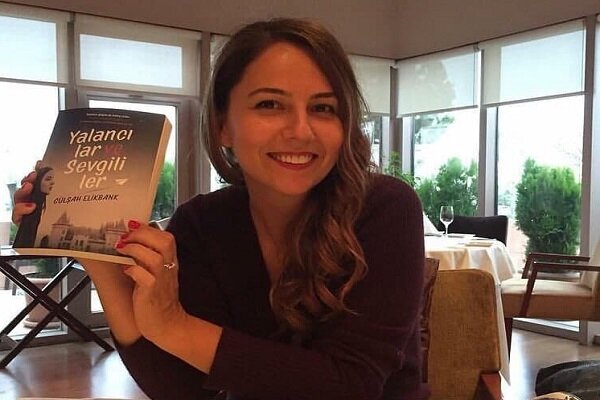Art is most effective way to introduce a country and its people: writer

TEHRAN – A Turkish novelist believes that art is the most effective tool to introduce a nation and its people.
“Art is the most effective way to introduce a country and its people correctly,” Gulsah Elikbank tells the Tehran Times.
The Turkish author says, “Our literature has always been a mirror of society.”
The following is the text of the interview:
Q: How can a novel connect the hearts and minds of nations?
A: Literature is built on understanding and making sense. In this context, understanding a person as a whole is an important step towards understanding all of humanity. In addition, when my novel, The Shadow of Love, was published simultaneously in 8 Middle Eastern (West Asian) countries in Arabic, I experienced the true meaning of this sentence.
You know, they say geography is destiny. Similar stories are experienced in similar geographies and such a novel touches the hearts of everyone who is a part of that story. This is what I went through. In addition, people get to know each other best by learning each other's stories. For this reason, art is the most effective way to introduce a country and its people correctly. Literature is the most effective part of this, of course.
Q: Are you familiar with Iranian literature and Persian novels?
A: When I think of Iranian literature, the first thing that comes to my mind is Tales of One Thousand and One Nights. And Leyla and Mecnun. Furug Farruhzad has a special place in my heart since I love poetry very recently. I think Iranian literature has a very strong background. In fact, I feel this for every literature that rests on the public and its epics. Nevertheless, I would like to follow Iranian literature more closely. Tehran is one of the places I want to see. Maybe, after the pandemic is over, it will be possible to come and meet Iranian readers, meet writers, who knows.
Q: Can you introduce the contemporary approaches of the Turkish novel to the Persian reader?
A: We can say that Contemporary Turkish Literature showed a different orientation after 2010. This date is also my entry year into literature. I first met the readers by writing a fantastic trilogy and the Gunebakan Trilogy I wrote was the first trilogy written by a female writer in my country. Fantastic literature, surrealist movement, and science fiction have influenced the literature of recent years, especially both readers and writers of the new generation. With Orhan Pamuk taking the Nobel, the world started to take a closer look at Turkish literature. Our literature has always been a mirror of society.
Q: What do Iranian and Turkish literatures have in common? Do you think our ties are limited to Jalaluddin Rumi only?
A: I don't think Mevlana is the only connection, but Mevlana is a very important thinker. It is obvious that he is a name well ahead of his age. It is only now that people have begun to fully understand it. In addition, I think the importance we attach to fairy tales, the tradition of folk epics, and oral storytelling make us close.
After all, we are fighting for survival against the world's giants in a region where the world is different and life is difficult. From time to time, problems arise that cause big skidding in both countries. There is, of course, a union of belief. I also think that the people of both countries are people who like to think about the world. The fact that we have a deep-rooted literary tradition emphasizes this.
Q: What is the role of mysticism in Turkish literature and novels? Where does this mysticism come from?
A: Mysticism, if you ask me, is a trend that has its origins in fairy tales. I grew up with oral tales I listened to from my grandmother. This led me to write my first novel based on a fantastic school. Anatolia has always been a place that is not content with what is visible, attributes different meanings to nature, and thinks between dimensions. But where science has come has brought us to the point where reality and surreal can be separated with a very fine line. Quantum physics in particular points to things that perhaps we've always heard in fairy tales. Anything imaginable has the potential to come true. In this context, how can we decide what is mystical and what is real? As a literary writer, what I have to do is create meaningful stories for people to ask the right questions, at this point.
